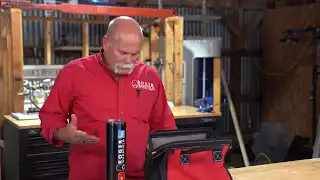Housekeeping Note
The following information focuses on Texas regulations for plumbing apprentices, but always check your own state’s guidelines or licensing board to learn about similar opportunities where you live.
Why a Pay Raise Matters Sooner Rather Than Later
Many plumbing apprentices spend years on the job without realizing they could boost their income and responsibilities right away. By earning specific endorsements and registrations, you demonstrate added value to employers—leading to bigger paychecks, faster promotions, and a clearer career path. While these endorsements vary from state to state, knowing what’s available in Texas can inspire you to explore parallel options wherever you are.
Understanding Endorsements and Registrations
The Texas State Board of Plumbing Examiners (TSBPE) oversees plumbing licenses. In addition to the standard Apprentice → Tradesman → Journeyman → Master path, apprentices can register for extra designations:
• Drain Cleaner Restricted
• Drain Cleaner
• Residential Utilities Installer (RUI)
Each one allows you to perform specialized tasks under a Responsible Master Plumber (RMP). These tasks often generate revenue for the company—making you more valuable. And when you’re more valuable, you have more leverage to negotiate a raise.
1. Drain Cleaner Restricted
What It Is
A starting endorsement for apprentices who want to clean drains and sewers without needing a full year or more in the trade.
Requirements
• Already be a registered plumbing apprentice in Texas.
• Complete a short verification of training affidavit, signed by your supervising plumber.
Scope of Work
• Clear obstructions in building drains and sewers through any code-approved openings.
• Must work under the direct supervision of an RMP when performing drain cleaning tasks.
• If you’re doing typical apprentice-level tasks (unrelated to drain cleaning), you still revert to standard apprentice rules—meaning you need direct supervision from a licensed plumber.
Earning Potential
Even at this early stage, being able to clear drains can increase your pay. Companies often charge premium rates for emergency stoppages, and if you’re the designated drain specialist, your boss will likely reward that skill. Extra money might come as a higher hourly wage or small commissions for each successfully cleared line.
Why Bother If You’re New?
You can quickly prove your hustle and gain real experience dealing with drain blockages. This endorsement breaks you into the practical, revenue-earning side of plumbing faster than waiting to learn basic fixture installs.
2. Drain Cleaner
What It Is
An advanced registration beyond Drain Cleaner Restricted, giving you more autonomy on drain work.
Requirements
• Already be a registered apprentice (or a Tradesman Plumber-Limited).
• At least 4,000 hours (around two years) of documented plumbing experience.
• Pass the TSBPE’s “Drain Cleaning Verification of Training Affidavit.”
Scope of Work
• Install cleanouts, remove and reset P-traps to clear blockages in building drains and sewers.
• If you’re an Apprentice with this endorsement, you still need direct supervision from a licensed plumber for other non-drain tasks.
• Tradesman Plumbers with a Drain Cleaner endorsement can do the above tasks in one- or two-family dwellings without immediate supervision.
Earning Potential
With 4,000 hours under your belt, you’re becoming more proficient—and this endorsement certifies it. Companies trust you to handle deeper or more complex stoppages, so your pay could jump significantly. You’ll likely tackle emergency calls or bigger commercial drain lines, which bring in higher labor fees.
Is It Worth It Compared to Becoming a Tradesman?
If you’re purely focused on drain cleaning (e.g., you’ve been at a sewer-focused company), it makes sense. But for broader plumbing skills, some people just go straight for Tradesman after 4,000 hours. Still, having both the Drain Cleaner endorsement and a Tradesman license can be even more compelling: you’re multi-skilled, and that can command a higher salary.
3. Residential Utilities Installer (RUI)
What It Is
An endorsement allowing you to install yard service lines (water) and building sewers for one- and two-family homes.
Requirements
• Must already be a registered plumbing apprentice in Texas.
• Complete at least 2,000 hours (about one year) in the trade.
• Submit the Residential Utilities Installer Verification of Training Affidavit.
Scope of Work
• Install yard water service lines and building sewers for single-family or duplex dwellings.
• Must work under the general supervision of an RMP for these tasks.
• Not authorized to install gas lines or supervise other apprentices.
Earning Potential
Residential utilities can be big moneymakers—installing water main replacements, hooking up new sewer lines, or doing major yard line repairs. Companies charge high rates for trenching and deep piping. As a result, your pay could jump if you’re the recognized go-to for yard line or sewer installs.
Comparing All Three
- Drain Cleaner Restricted: Start drain cleaning almost immediately for basic stoppages.
- Drain Cleaner: Tackle deeper or more complex drain tasks after 2 years.
- Residential Utilities Installer: Focus on exterior yard and sewer lines after about 1 year of apprenticeship.
Each endorsement signals to your employer, “I can legally and safely perform these tasks,” which in turn increases your billing potential and your request for a pay raise.
How This Translates to Real Money
These endorsements let you handle tasks that bring in high hourly or flat-rate revenue for your plumbing company. When you can do more specialized jobs—like drain clearing or installing yard lines—your employer can schedule you for those calls, generating more income overall. You become an asset rather than just a general helper.
Some companies reward you with: • Higher base wage.
• Additional hourly bonus when performing advanced tasks.
• Commission or performance-based pay on each drain job or yard line replacement.
If your current employer isn’t open to raises, the endorsements still look great on your résumé. Rival companies might be eager to hire a specialized apprentice or a Tradesman with drain cleaning credentials.
The Smart Approach to Promotions
- Be Proactive
Mention to your employer that you want to get these endorsements. Ask if they’ll cover fees or the affidavit steps. - Stay Organized
Track your hours carefully. TSBPE requires proper documentation, so maintain logs or have your supervisor sign off regularly. - Learn on the Job
Watch how experienced plumbers handle drain calls or yard line installs. Volunteer to help whenever possible—hands-on experience is your best study tool. - Handle the Paperwork
Go to the TSBPE website (or your state’s plumbing board if you’re elsewhere). Download the verification forms, fill them out accurately, and pay any registration fees. - Prove Your Value
Once endorsed, step up to handle those tasks independently (under the required supervision level). Keep track of successful jobs, share positive customer feedback, and then negotiate your raise.
Additional Tips
- Check Local Codes
Some states or cities have different titles or require more training hours. For instance, not all places have a “Drain Cleaner Restricted” category. - Don’t Stop Learning
Think beyond these endorsements. After enough hours, go for your Tradesman or Journeyman license. That’s a substantial leap in earning potential. - Focus on Clean, Quality Work
If you can consistently clear drains without call-backs—or lay yard lines with minimal leaks—you’ll build a strong reputation. A reputation for quality often leads to bigger paychecks. - Offer Additional Services
If you’re installing a yard water line, maybe the homeowner needs a new shutoff or a basic filtration system. Discuss these upgrades with your boss and customer. More revenue for the company can mean bigger bonuses for you.
Why Endorsements Beat Coasting as an Apprentice
Many apprentices wait passively for their years to stack up, hoping eventually to become a Tradesman or Journeyman. These extra registrations help you break out of that mold. They also prove to yourself (and your boss) that you’re driven. By showing initiative early—like after your first few months on the job or once you hit 2,000 hours—you gain specialized credentials that set you apart.
You might realize you enjoy certain niches: maybe you love the physical challenge of clearing nasty clogs, or you find yard line installs oddly satisfying. Specializing can guide your future licensing path, leading to quicker advancement and the pay raise you crave.
Don’t Forget the Basics
While you’re chasing these endorsements, never neglect the foundational skills: • Cutting, prepping, and assembling pipe properly.
• Properly sizing drain lines and vent stacks for each fixture.
• Understanding local codes thoroughly.
• Respecting safety procedures (trench safety, tool usage, confined spaces).
Consistent quality plus advanced endorsements is a winning recipe for jumping from, say, $17/hr to $25/hr within a year or two.
Final Advice: Seize the Opportunity for a Raise
In the trades, knowledge is money. If your boss can trust you to handle specialized drain or utility work, you become more profitable to them. Use these endorsements to accelerate your learning curve and stand out from other apprentices who only do the basics.
Check your state’s plumbing board website (or the TSBPE if you’re in Texas) for endorsement applications. Do the short paperwork, study the tasks, and have a licensed plumber verify your hours. Once you’re approved, mention this new qualification in your next review. Or, if that fails, apply at a company that values multi-skilled apprentices. In either case, you’ll be on track for bigger paychecks—without waiting four full years to become a journeyman.




